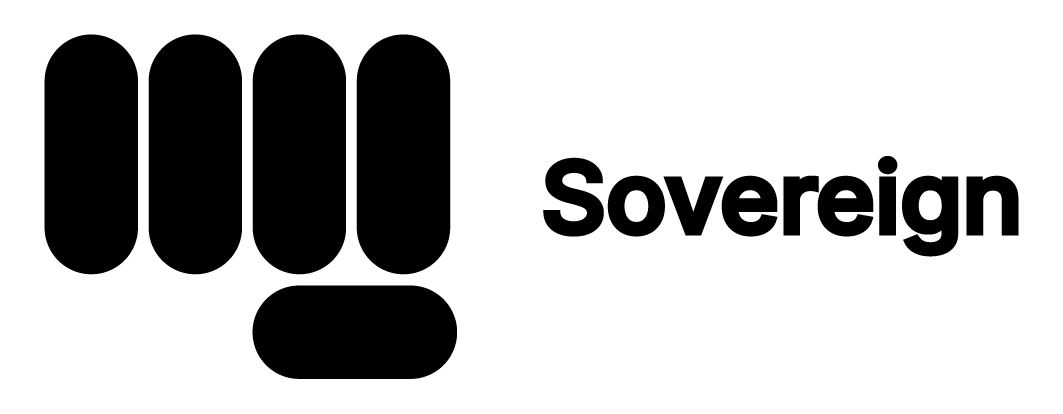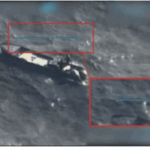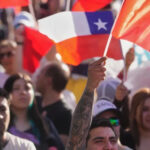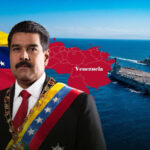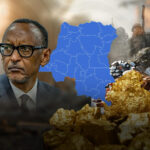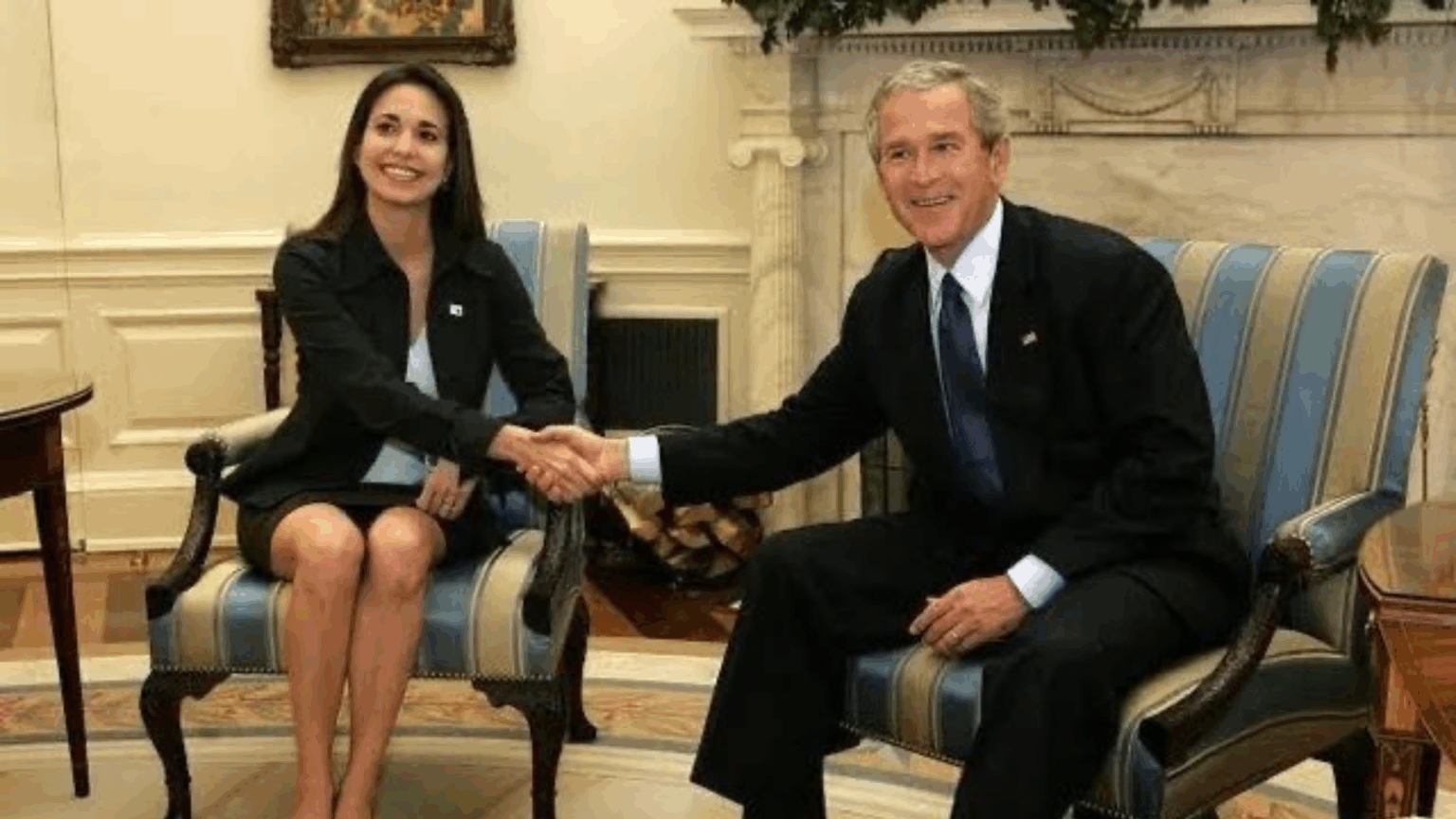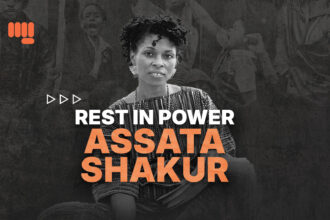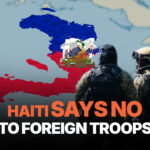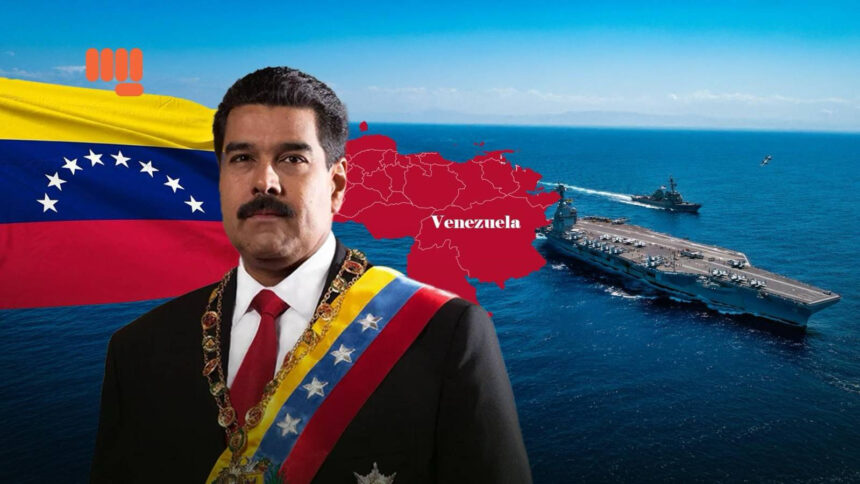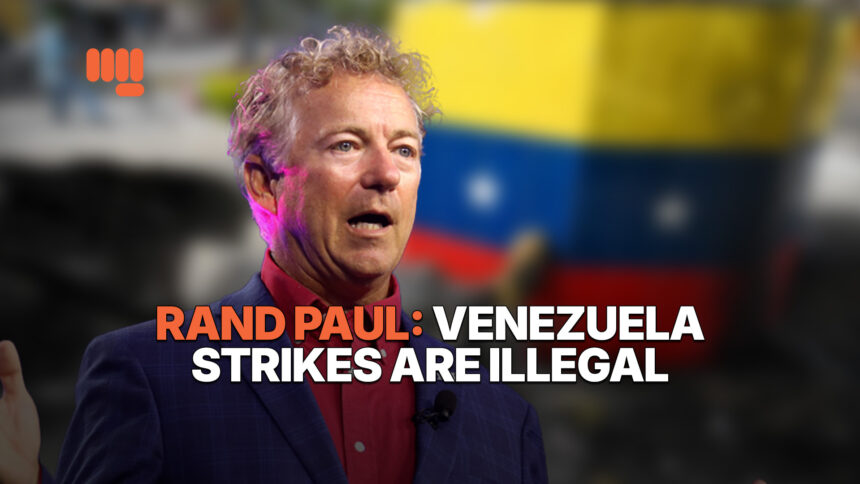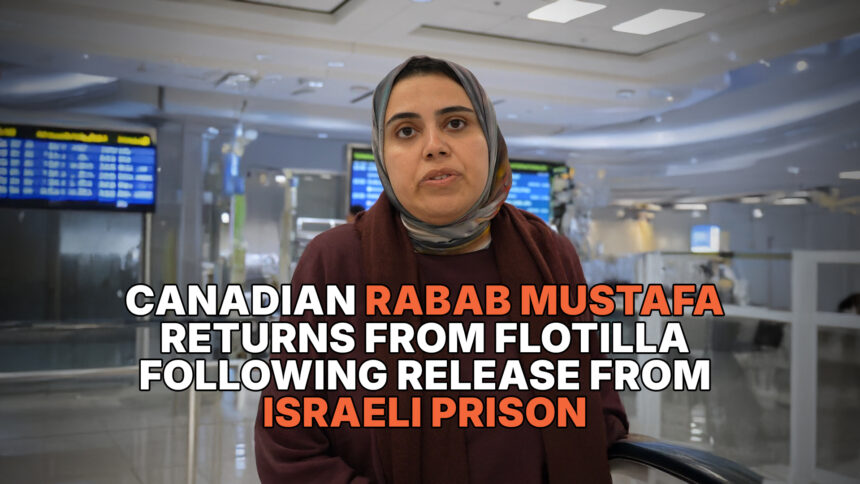The run-up to this year’s Nobel Peace Prize had many fearfully expecting Donald Trump to win the award. But in an unexpected twist, the Nobel Committee found an equally (un)deserving far-right lunatic: Venezuelan fascist opposition leader and number one US lackey María Corina Machado.
The prize, created by an arms manufacturer and awarded by a NATO member, has long been an exercise in Western imperial hypocrisy. Past winners have included the likes of Henry Kissinger, whose crimes are too vast to enumerate, and Shimon Peres, the genocidal Zionist entity’s supposed “dove.” Barack Obama won it in 2009 and went on to launch multiple wars and massive extrajudicial assassination campaigns. Simply put, the Nobel Peace Prize is just a varnish thrown onto Western foreign policy.
In Machado’s case, she was picked “for her tireless work promoting democratic rights for the people of Venezuela and for her struggle to achieve a just and peaceful transition from dictatorship to democracy.” A quick look at her resumé shows this could not be farther from the truth.
With Washington ramping up military threats on Venezuela’s doorstep, the award is a naked attempt to add fuel to the regime-change fire.
From an elite background to an undemocratic agenda
María Corina Machado Parisca is the scion of two of Venezuela’s most powerful oligarchic families. These clans shaped the country to their interests for nearly 200 years, starting as large landowners before forming a dependent and parasitic bourgeoisie. Machado’s father, Henrique Machado Zuloaga, was a steel mogul, while her uncle, Oscar Machado Zuloaga, headed the Fedecámaras business lobby and Caracas’ electrical utility, the largest private company in Venezuela.
The election of Hugo Chávez and the radicalization of the Bolivarian Revolution after 2001 threatened to shatter the privileged neocolonial enclave of Venezuela’s Euro-descendent settler elite. In their eyes, Chávez’s efforts to empower the popular racialized majority – enacting agrarian reform, asserting national sovereignty over hydrocarbons, and increasingly assuming an anti-imperialist geopolitical alignment – represented an existential threat.
And so they struck. In April 2002, Fedecámaras, the corrupt trade union federation CTV, and sectors of the military deposed the democratically elected Chávez government. Machado was one of the signatories of the so-called “Carmona Decree,” which dissolved all the legitimate institutions, voided the 1999 Constitution and established a transitional government.
The Venezuelan middle and upper classes rejoiced, thinking that their nightmare was over. But the Venezuelan people had other plans. A massive popular uprising overthrew the newly minted dictatorship in less than 48 hours, restoring Chávez to his rightful place in Miraflores Palace.
With the coup resoundingly defeated, Machado leaped to the spotlight with another attempt to remove the Chávez government. At the head of the US-funded NGO Súmate, she led the campaign for a recall referendum against the president.
Chávez embraced the challenge and handily won the vote 59-41. But that did not stop Machado’s Súmate from spreading fake exit polls and, in what would become routine for the Venezuelan opposition, claim fraud with no evidence at all.
While Machado failed to oust the Bolivarian government, her efforts were recognized by then-US President George W. Bush, who hosted her at the White House in 2005.
Foreign intervention siren songs
After a few years in the political wilderness, the far-right politician returned to center stage by winning a National Assembly seat in 2010. Machado openly espoused her opposition to the Chávez government’s socialist path, equating sovereign nationalizations to “theft.”
But her efforts to topple the elected government by any means necessary continued. In 2014, after President Nicolás Maduro’s first election, Machado joined forces with fellow elite poster-boy Leopoldo López to lead a plan called La Salida (“The Exit”) in an effort to remove the government.
Machado and López’s call led to weeks of anti-Chavista street violence, known in Venezuela as guarimbas, which left 43 people dead. Machado went as far as usurping Panama’s seat at the OAS to attack the Venezuelan government. Three years later, she embraced a second iteration of the guarimbas that was even deadlier, with more than 120 reportedly killed. In one particularly gruesome episode, Afro-Venezuelan Orlando Figuera was burned alive by far-right activists who accused him of being a “Chavista” or a “thief,” epitomizing the fascism of Venezuela’s US-backed opposition.
As the street violence coup attempts fell flat, Machado threw her firm support behind US economic terrorism, with sanctions that have caused tens of thousands of deaths since 2017. She likewise endorsed the 2019 Washington-recognized self-proclaimed “interim government” which staged its own set of coup attempts while plundering Venezuelan assets abroad.
With the opposition unable to take power on its own, Machado also made a recurrent habit of calling for a foreign intervention. Venezuelan elites could not survive without the umbilical cord to Washington, and lacking popular backing, their best hope was to arrive at the presidential palace aboard a US helicopter.
Alongside on-the-record requests for a foreign military intervention, Machado also made pitches to US corporations about the paradise they would enjoy should she ever hold power in Venezuela. Their wildest neocolonial dreams, from privatizations galore to pilfering of oil and natural resources, would come true. As a reward for her loyal service, US Secretary of State Marco Rubio nominated Machado for the peace prize.
It is no surprise, given her full-throttled promotion of US imperialist interests that Machado has been consistently fêted by the corporate media. Western outlets have dutifully whitewashed Machado, presenting her as a champion of democracy and even calling her “Venezuela’s Iron Lady” in a quite appropriate allusion to Britain’s infamous neoliberal despot and champion of Third World fascism, Margaret Thatcher.
The warm embrace of Zionism
Machado’s extensive rap sheet thus far is sufficient to dismiss any “peace” award as beyond farcical. But there is one even more damning element: the fascist leader’s wholehearted embrace of Zionism.
Over the years, Machado has repeatedly praised the genocidal Israeli settler colony for upholding “Western values” and defending “freedom” while also promising to establish a future Venezuelan embassy in Jerusalem. Her racist contempt is a constant, whether it is for Palestinians or for the Venezuelan people whom she wishes to rule. Machado’s party went as far as establishing an alliance with Prime Minister Benjamin Netanyahu’s party, Likud.
But it is not just admiration from afar. In 2018, Machado penned a letter to Netanyahu asking him to spearhead an international intervention to overthrow the Maduro government in Venezuela. Coupling her foreign allies to her pledges to “eradicate socialism,” a dirty and bloody war against Chavismo would likely be on the cards should the far-right leader ever take power.
More recently, Machado even thanked Israeli officials for taking a break from their colonial holocaust to offer backing for the Venezuelan far-right’s regime change efforts.
Indefensible lackeys
Though expectations surrounding the Nobel Peace Prize are justifiably low, Machado’s selection may have provided one of the final blows to the award’s credibility.
The Nobel Committee’s decision once again ratifies Martinican poet and anti-colonial political leader Aimé Césaire’s immortal refrain: “Europe is indefensible.” The verdict seamlessly extends to the US empire and its settler allies and lackeys, from Benjamin Netanyahu to María Corina Machado.
Ricardo Vaz is a journalist, editor and political analyst based in Caracas, Venezuela. He is a member of independent media outlet Venezuelanalysis as well as Venezuelan communications collectives Tatuy Tv and Utopix.
